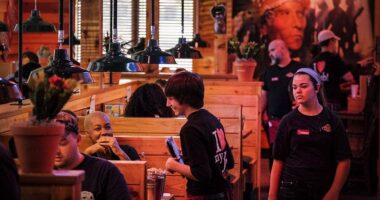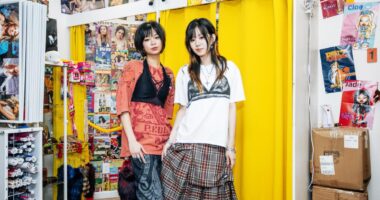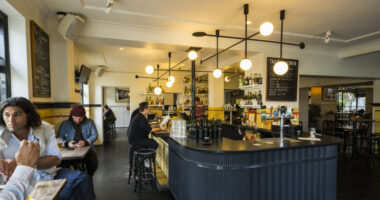Can you share a bit about yourself, your family background, and where you were raised? I am Tolulope Auko. I was born about 50 years ago in Ilesha, Osun State.
Can you provide details about your educational background, including the primary, secondary, and tertiary institutions you attended? I became blind at the age of five. I attended Pacelli School for the Blind in Lagos State for my primary education, spending four years there. Afterward, I went to a mainstream secondary school. I studied for my National Diploma at The Polytechnic, Ibadan, in Oyo State between 1988 and 1990, and for my Higher National Diploma from 1994 to 1996. I earned a Master’s in Communication Arts from the University of Ibadan from 2005 to 2007, and I also obtained an MT in Mass Communication from Lead City University. I am a specialist in mass communication.
When did your eye condition first manifest? My condition started mysteriously. I remember having trouble with my vision, and within 10 minutes, I lost my sight.
Were there any initial treatments following the onset of your eye condition? Yes, of course. No parent would take such a situation lightly. I was rushed to the hospital in Ilesha. Later, we went to Kano Specialist Hospital, where it was confirmed that it was a complicated cataract and would be impossible to restore my eyesight. We also tried native medicine, but I eventually resigned myself to fate.
At what stage did this happen — during primary school or secondary school? It was when I was about to commence primary school.
When you realized there was no solution to the eye problem, how did you react, and how did your family respond? As young as I was back then, I was not happy. My family every day and night continued to weep. They believed that when you are in that condition it is a sign that you are unlucky or that you have sinned against God and God has allowed Satan to deal with you. So, it was a pathetic situation. They were keeping me indoors from morning till night. I did not see the light of the day. They believe that I am constituting a nuisance in the family. So, they thought that the best thing to do was to hide me.
How many people are there in your family? Well, there are five of us, but unfortunately, we live in a family house, so we have a lot of extended family members.
What is your position in the family? I’m the second.
How did you manage through primary and secondary school? What were those experiences like for you? When I grew up, I realized the immense power of the media. My father, working in Lagos State at the time that I had the eye problem and he heard over the radio about a school for blind and partially sighted children called Pacelli in Lagos. He then decided to enroll me in the school. Upon enrolling me, I discovered I was not alone with the condition. There were many other children younger than me with the eye condition. The school had over 150 students and was well-equipped to handle our needs. Brilliant students like myself received automatic or double promotions, enabling me to complete secondary school in four years. At Pacelli, we were taught braille alongside the regular curriculum to prepare us for secondary education, where sighted teachers couldn’t read braille, but would read our typed work during exams. This method allowed me to navigate the secondary system effectively. In secondary school, only five of us were blind among 1,500 students. We recorded lessons with tape recorders and transcribed them using braille at home. During exams, we used typewriters, making it easier for teachers to mark our work. Realizing the power of media, I pursued Mass Communication at The Polytechnic Ibadan for my National Diploma and Higher National Diploma. Blind people’s heightened auditory senses aided my concentration. Afterward, I joined the Federal College of Education, Special in Oyo State as a lecturer before pursuing my Master’s at Lead City University.
During your schooling years, did you encounter any stereotypes that made you feel distinct from your peers? There is discrimination when you are the only blind student in the class. People look at you as if you are genetically wrong, seeing you in a different light entirely. So, discrimination exists. However, when they noticed my performance in secondary school, some of those looking at me differently began to show more interest in me and requested to share knowledge. At Polytechnic, I was also the only blind person in the class. Some discriminated against me while others didn’t mind associating with me. However, the lecturers were very supportive, which made things easier, but discrimination was still present, and I faced it. I viewed





